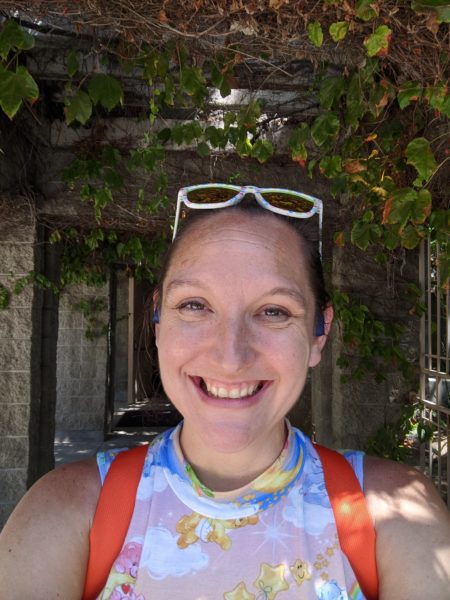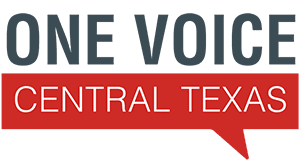
-
Name
Carrie Graham -
Title
Reverend -
Organization Name
The Church Lab -
Number of Years as Executive Director
I founded The Church Lab -and started as its director and pastoral facilitator- about 11 years ago.
-
What does your organization do?
The Church Lab (TCL) explores innovative paths of spiritual maturity for all, discovering the Church's future and the future of faith practice.
In other words, we are really into the future of faith practice. As people's postures toward religious institutions change, we are experimenting with how to help people meet spiritual needs, whatever their background and sensibilities may be.
Our primary way of experimenting with this is through a long-term, small inter-religious dialogue group full of unlikely friends who have contrasting belief systems. Over the years, we have learned about the ways dialoguers encounter ways to meet their spiritual needs as they explore spirituality in a diverse group of people.
Of course, this means along the way, TCL has learned big lessons about what it looks like to build bridges across difference in a polarized cultural era. To help meet our wider community's needs, we offer workshops on navigating and facilitating divisive conversations. This is offered to anyone, whether or not participants are interested in spirituality. With a decade of experimental ministry under our belt, we work with and offer ongoing support to cohorts of pastors and seminarians who are interested in the future of faith practice themselves. -
How did you become interested in this work?
I have long been interested in the intersection of belief and behavior, how it affects our quality of life and the quality of our societal lives. I believe spiritual needs and belief systems -including our agnostic and atheist neighbors - are important parts of our lives to nurture and respect within ourselves, and from one to another.
Just as much, I believe that spiritual or not, we all benefit from the tools and wisdom that come with experiencing the dignity in neighbors of significant difference. I believe this makes us better humans and citizens; dialogue fosters genuine respect and dissipates loneliness. While dialogue work is hard and
slow, its impact has great and enduring ripple effects which foster compassion, care and deep connection. In this regard, I believe strongly that small group, long-term dialogue groups are an anecdote to some of American culture's core struggles. -
What drives your passion?
See #3. -
Do you have a mentor or a role model?
I'm trying to offer a new model for ministry while ministry as we know it in the U.S. is dying. My late mentor Father Thomas McKenzie encouraged me to go into vocational ministry, to exercise trust in my own understanding of God, and to believe in myself and my call, even when I have encountered the many uphill obstacles in ministerial entrepreneurship.
Dr. Richard Mouw, former president of Fuller Theological Seminary, is a pioneer in the realm of interfaith dialogue and in engaging culture with "convicted civility." His example helped me "discover" the transformative experience of dialogue in my own life, and his encouragement spurred me on to believe in my own leadership capacity.
Of course, I love examples of the likes of Mother Teresa who encouraged us to see the face of Jesus in everyone we meet. She lived her life by the virtues of faith, without reward in mind. She recognized a lack of love as the "leprosy of the west." She said, "The poverty in the West is a different kind of poverty -- it is not only a poverty of loneliness but also of spirituality." Even in her time, she shed light on the debilitating aspects of our loneliness epidemic, and how an unassuming care for one another could break isolation's hold on us. When I learned of her perspective back in seminary days, it immediately shifted how I understood ministry and how I wished to serve.
-
What's the biggest challenge in your work?
As with most non-profits, our biggest challenge is fundraising sufficient resources to match the needs we are attempting to meet, and the time and energy it takes to do so. About half of our funds come from monthly and annual donations from individuals who do not tend to be well-resourced themselves. Thankfully, this brings meaning and a true sense of partnership among our donors, whose direct contributions of any amount make a real difference in our modest budget. The other half of our budget comes from grants, contracts and subsidized fees for services. Because the nature of our work is toward a very specific kind of cause, finding grant partners who are willing to take a chance on us, and who share similar passions, can be challenging as well.
-
What's the best advice that you have ever received?
Each person in ministry must minister out of the fullness of who they are (Father Thomas McKenzie). The implication is that we must take good care of ourselves both in and out of work, and we must find work environments in which we can thrive. We make the biggest impact by being determined sustainably bring our whole selves to service. -
What are your top tips for new Executive Directors?
1) Invisible trophies for being too busy and seemingly important don't bring people lasting joy. We need more people to engage where their deepest joy meets the world's greatest needs, as theologian Frederick Buechner advises. This requires self-care, which is different than self-indulgence. Please do ongoing work to know yourself well, and to be a good steward of yourself in mind, body and spirit. In this pursuit, boundaries are our needed friends, and knowing oneself helps to choose them well, and to evolve them from season to season.
2) Board culture is worth nurturing. It is/becomes a mirror to organizational health, and to an organization's ability to healthily meet its mission.
3) I used to think people used the word "networking" as a stand-in term for "inauthentically, transactionally connecting with people." That may be some folks' road, but for me, I have found freedom in sincerely connecting with wonderful people doing great work I admire, and watching partnerships emerge from a place of mutual respect. At some point I stopped putting pressure on myself to connect with people whether or not it felt mutually sincere, and I stopped indulging conversations that made me feel treated poorly. I have never been sorry for abstaining from transactional interactions or missing out on partnerships I would have suffered through if I had pursued them. It is conceivable, though not probable, I have lost out on some amount of funding or wages because of this. (Our budget has still steadily grown throughout our life cycle.) I am content with this, as my quality of life and sustainability of service are significantly better off for it.
Anything Extra To Add?
To learn more about The Church Lab visit their website. Please see our Archive of Featured Members to read about other members.
Additionally, Rev. Carrie Graham has also created a video about her organization. Watch it here!
